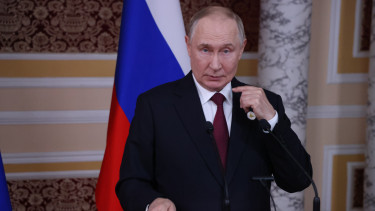Regardless of who wins U.S. elections, there will be no peace with China

Many people consider the coronavirus’ effect on the stock market to have already passed. Are we right to believe them or should we prepare for long-term effects?
The coronavirus should certainly be reflected in the economic development of the coming quarters, and thus also in corporate profits. We are beginning to see it in the initial data from China and the OECD has also already lowered its growth expectations. Also, from an economic point of view, the outbreak came at a very unfavourable time, as the economic recovery was still extremely fragile. A V-shaped very rapid recovery is therefore unlikely. But beware of extreme scenarios.
As a non-physician, I have made it clear to myself that the virus is a strong form of flu, with a higher probability of death. However, it is not an Ebola-like virus and first successes in containing it have already been achieved. For me as an investor, this means that now is the best time to reconsider the strategic allocation in my portfolio. The time for expanding the equity allocation is approaching.
U.S. stocks are on historical highs, while Europe seems to be lagging behind. Is it advisable to rearrange our stock market investments to Europe?
In fact, valuation factors such as dividend yield and price-earnings ratio speak for European stocks. The "old" continent has also been associated with the topic of "Brexit" for too long. As a result, foreign investors in particular have not invested in the region, and we are now seeing fund flows reversing more strongly again and moving towards Europe.
Inflation seems to be returning everywhere in the world, a lot of people are deciding to assume stock exposure to achieve higher real returns. Can this give a boost to markets?
Inflation is hardly an issue, especially in the USA and Europe. Inflation expectations here have recently turned downwards again, from an already low level. But in fact, equities are appearing on the screens of more and more investors because there is no alternative investment. A good quarter of the bonds outstanding worldwide have a negative nominal (!) return. In the case of European government bonds, this is even true of 60%. And here we have not even considered the - albeit low - inflation, which leads to an additional loss of purchasing power. That we will not change that quickly. Equities offer an alternative. This should also support the market.
When it comes to investments, it is commonplace to say that stocks over perform on the long term. Do you think that if someone invests into stocks right now, they will achieve higher returns on the long term?
The history of the capital markets tells a simple story: it was worth accepting the higher risks of shares. On the US market, the risk premium (i.e. the yield differential between equities and government bonds) has remained at an average of 3.4% p.a. from 1800 to the present. This does not mean, however, that I would invest everything at once today, especially as I expect further increased volatility within the corona virus context. But why not gradually increase the equity allocation? I do indeed expect that the risk appetite will continue to pay off in the future.
What black swan-like events can you list that could affect the markets on the short and medium term?
"Black Swans" have the characteristic that they are "unknowns", i.e. these events are not predictable. If I try to do it anyway: A hard Brexit and the consequences of climate change are part of it for me. That's why it's so important for me that we as investors invest according to ESG criteria (environmental, social governance). Mutual Funds increasingly make this possible.
The U.S. presidential election is upcoming this year. Can investors position themselves on the market in preparation for this event? If yes, how?
This is a tough question because it is not yet clear who is making the race at the very end. The opinion polls are giving no clear direction. Therefore it seems to be too early for investors to position themselves. But one thing Internal seems to be quite clear: Whoever is going to make it, will not change politics when it comes to trade conflicts. The US-China trade conflict is a conflict for political and technological supremacy.
The trade war is becoming quite an evergreen topic: do you think this conflict can end soon or is it due to last for another few years? Who may be the winners and who will be the losers?
The trade conflict will clearly revive, as there is more at stake than soy sprouts and high-tech goods. In the end, it will know no winners, only losers. Globalization is a win-win situation.
Which investments and trends can show desirable potential for returns on the market right now?
I see increasing interest in "Thematic Investing" because investors are realizing the "old world", which allocates according to countries and sectors, is increasingly outdated. Mega-trends determine the success of investments. These include demographics, urban living, disruptive technologies and scarce resources - the environment is already a scarce commodity. Overall, this also explains the great interest in investment opportunities in AI.
How well can you see the Hungarian market from Frankfurt? Is it even worth investing in such small stocks as a global investor?
We see it out of European lenses. The Hungarian market should be seen as part of a well-diversified portfolio.








